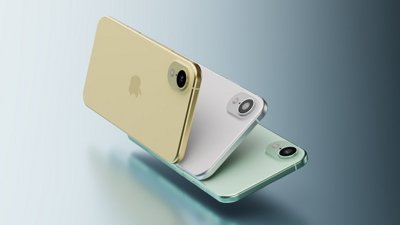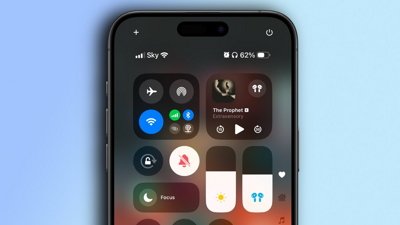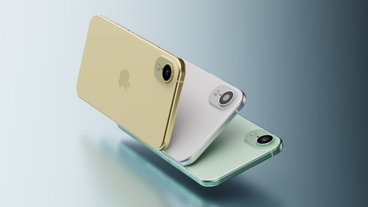The French government is reportedly investigating a recent private complaint against Apple, which charges that the company's decision to slow down iPhones with weak batteries is a form of planned obsolescence meant to sell new hardware.
The investigation was initiated on Friday, and is being led by the DGCCRF anti-fraud agency, according to a judicial source cited by Reuters. Action began because of a legal complaint by consumer association Halte l'Obsolescence Programme, or Stop Planned Obsolescence in English.
HOP first filed a criminal lawsuit against Apple in December, saying its goal is to "defend customers and the environment against this waste organized by Apple." In France it's illegal to intentionally shorten the lifespan of a device, and the company could conceivably face fines and/or prison sentences.
Apple admitted to slowing down old iPhones on Dec. 20, and has since been hit with a barrage of legal actions worldwide. The company has defended its strategy as necessary to protect devices from sudden shutdowns, which could damage electronics.
Plaintiffs and other critics have claimed that intentionally or not, Apple's policy makes people more liable to buy new iPhones. Older models will often have trouble with newer apps and iOS updates.
In response to early public outcry, Apple issued an apology and began selling $29 out-of-warranty battery replacements, down temporarily from $79. The company is also working on a software update that will provide more details on battery health.
 Roger Fingas
Roger Fingas








 Charles Martin
Charles Martin
 Amber Neely
Amber Neely


 Sponsored Content
Sponsored Content
 AppleInsider Staff
AppleInsider Staff
 Malcolm Owen
Malcolm Owen
 Oliver Haslam
Oliver Haslam







26 Comments
But when you replace the battery at a price, and the phone runs like new because you replaced the battery, died planned obsolescence still stand? And what about the other manufacturers that release phones at the level In price and refinement or their cheaper options? Apple was wrong for not being upfront about processor slowdown for the sake of an almost dear battery but everyday I just see it as an attack based on it’s the most popular company where their prices are mostly eye watering expensive even though I feel from experience the other companies are far worse.
Wouldn’t old phones that suddenly shut down be more likely to prompt a new phone purchase? This software management is more likely to enable people to limp along with the old phone that little bit longer.
The thing that I find fascinating about this brouhaha is the number of people willing to aggressively assign the worst motives to Apple, willfully misunderstand what has happened, and demonstrate their ignorance in the loudest manner.
Apple’s sins are a lack of communication, a lack of communication, the high price of their phones, the one year warranty, a lack of communication, and a tendency to make what’s inside the phone a mystery. Oh, and a lack of communication.
The company's idea that customers will be comforted with a $50 discount on batteries is as naive as a badass can value his customers themselves.
One opinion:
https://techpinions.com/design-decisions-smartphones/51975
There is some truth in the idea which lends support to the French investigation but I can't see how this can be proved unless we get a wiki leaks style revelation from someone in the know. The article has an error or two but the idea is clear.
Apple has been treading a fine line for a few years now and in an age when people are using their phones more than ever before and technologies are being pushed that spin the cycle of near constant use, it is true that batteries will run through enough cycles to see them degrade 'early'. That might be tricky to define, though.
I'm not sure if requiring the user to change the battery will be enough to justify the use from the get go that some may consider the presence of 'inadequate' battery capacities.
My sister-in-law just bought a fully electric car. The battery is guaranteed by the manufacturer for a minimum of five years, no matter, the charge cycles, temperature, climatological situation etc.
Should mobile phones come with similar warranties for a set period of time that exceed the current statutory warranty?
I firmly believe this issue is the result of incompetence by some Apple engineers and not some grand conspiracy to force devices to be unusable. If Apple had included the code in iOS to begin with the argument would have a little more weight, but ultimately the throttling was implemented after multiple users complained of unexpected shutdowns. This was a bandaid fix to a flawed design. For whatever unknown reason the iPhone 6 and later need more voltage than the battery can supply under normal operating conditions when the battery is only slightly degraded. If Apple was planning on "encouraging" upgrades they certainly could have found a much better way to do so.